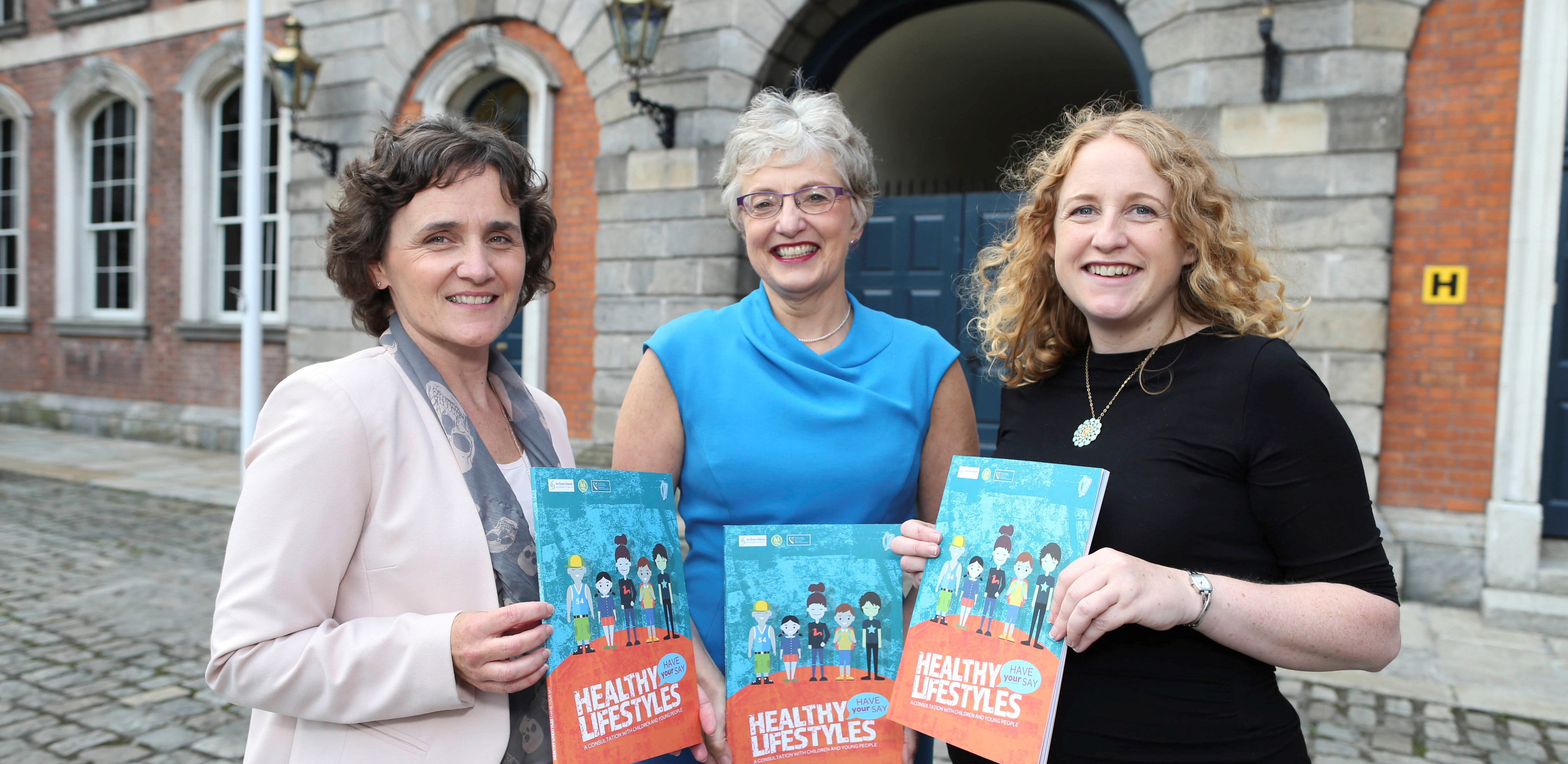Op-ed: Including children’s views in new Obesity Policy

The Minister for Children and Youth Affairs Katherine Zappone TD last week launched week on a consultation with children and young people ‘Healthy Lifestyles Have Your Say: A Consultation with Children and Young People’.
This formed part of a national consultation process with stakeholders for the new National Obesity Policy, A Healthy Weight for Ireland: Obesity Policy and Action Plan 2016 – 2025, which was launched on the same day.
The consultation report was commissioned by the Department of Health and conducted by the Citizen Participation Unit, Department of Children and Youth Affairs (DCYA). Two consultations were held – one with 34 young people aged 13 to 17 years, from Comhairle na nÓg, and one with 48 primary school children between the ages of eight and 12 years.
As part of the consultation process a team from the School of Applied Social Studies in University College Cork (UCC) worked closely with the Citizen Participation Unit of the DCYA. Dr Shirley Martin, Dr Deirdre Horgan and Dr Margaret Scanlon observed and recorded consultations; analysed consultation data/results; and prepared the final report for publication.
Much research speaks to the importance and benefits of listening to children - it helps us to understand children’s experiences and produces better policy and better services. The right of children to participate in decision-making that relates to them is enshrined in Article 12 of the United Nations Convention on the Rights of the Child. In addition to this, involving children and young people in decision-making is national public policy in Ireland.
The first Strategy on Children and Young People’s Participation in Decision-making, 2015 – 2020 was published in 2015 (DCYA, 2015). The goal of this Strategy is to ensure that children and young people will have a voice in their individual and collective everyday lives across the five national outcome areas.
Specifically, in relation to health and well-being it states, Children and young people will have a voice in decisions that affect their health and well-being, including on the health and social services delivered to them (DCYA, 2015: 3).
Children and young people, like other members of society, have a stake in debates about body size, and their ideas about health and other aspects of their lives are increasingly seen as valid contributions to the development of social policy. Giving children a voice in how policies and services are developed promotes citizenship and active inclusion of children and enables them to learn that they can make a difference and influence what happens in their environment.
The report found that children and young people’s constructions of health and healthy lifestyles are multifaceted. Children and young people involved in the consultation appear to be well informed as to the general factors which contribute to healthy and unhealthy lifestyles. Healthy lifestyles are often associated with balanced diet, physical exercise, having supportive families and friendship groups, a good balance between school work and leisure, and positive personal attributes (self-esteem, confidence, motivation).
Children and young people’s multi-faceted understanding of health was not limited to physical aspects but included mental and emotional health. There were some differences of emphasis related to age, with the older age group engaging more with issues relating to mental health and peer relationships, while younger children focused more on balanced diet and exercise. Another key finding from the consultation is that young people see health as being influenced not only by personal choices, but by broader contextual issues, including family and friends, schools, the physical environment, community settings and widersocietal issues.
Dr Shirley Martin and Dr Deirdre Horgan, School of Applied Social Studies, UCC.
Read the full report: http://www.dcya.gov.ie/documents/publications/20160922HealthLifestylesReport.pdf
